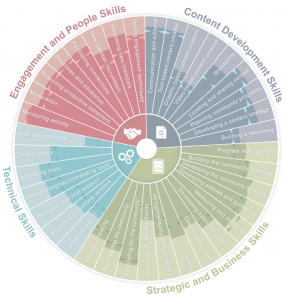By Rachel Happe, Principal and Co-Founder, The Community Roundtable.
It’s a great time to be a community manager. Companies big and small are starting to recognize that is a critical skill to help transform their organizations for a digitally connected world.
Our mission at The Community Roundtable is to advance the business of community and research has always played an integral part of that – helping people understand the dynamics and management approaches that build successful communities. We’ve made great strides at the macro level with our State of Community Management report and our Community Maturity Model framework – so much so that we can now benchmark the maturity of an organization’s community management approach.
It is time to take the same research approach to the role of the individual community professional and we are excited to announce the publication of our first Community Manager Salary Survey, made possible with support from Jive Software.
This research is becoming increasingly urgent due to a variety of trends we see:
- Lack of recognition of how critical the community management discipline is to digital transformation and the future of work. We believe community management is the future of management and a critical component to enabling the future of work.
- Community professionals are increasingly frustrated because of poorly defined roles and lack of advancement opportunities.
- There is very little data about community management roles, making it challenging for hiring managers to define well constructed job opportunities.
So what did we find?
- While there is still a lot of variability in skills and compensation levels in community management roles, there are distinct roles starting to emerge – specialist, manager, strategist and director. 36% of community professionals have been promoted within their role; an encouraging sign that organizations value the role and want to enable a career path.
- At the executive level – community management is strategic – responsible for strategy, governance, program management and ensuring communities meet business objectives.
- Performance measurements for community managers are still evolving – there is no one dominant measure being used to evaluate the performance of community professionals.
- Organizations are still largely not supporting formal professional development resources for community managers like membership in professional development networks, training and coaching.
Along with this research, we also published the Community Management Skills Framework, designed to:
- Provide a common framework for understanding the skills required for community management.
- Give community managers a tool to evaluate and develop their own skills.
- Support hiring managers and HR teams as they define formal community management roles within their organization.
- Look at and compare the skills of community teams so gaps can be addressed and existing skills can be leveraged.
The full report contains specific data for internal (employee-facing) and external (customer and market-facing) community professionals – including average salaries, percent who get bonuses, profiles of skills and responsibilities by role, performance criteria and professional development resources.
We would love to hear from you about what surprised you, what you think is missing and how you will use this data to further your own development.

